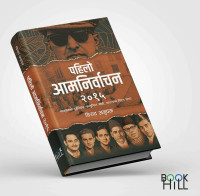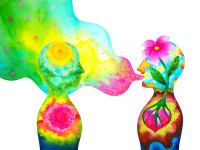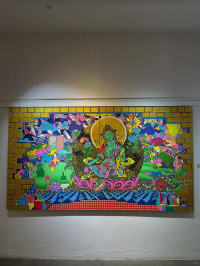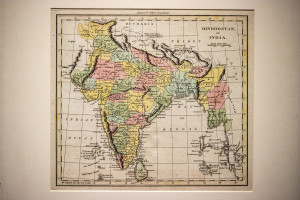Culture & Lifestyle
‘Something shifted’: Nepal’s Gen Z on their political awakening
Once disillusioned and distant from politics, young Nepalis share their ‘before-and-after’ reflections on how the Gen Z movement made them more aware, united, and ready to demand change.
Post Report

Nischita Niroula
16 years old
Itahari
Before
Before the Gen Z protest, many young people in Nepal, including myself, were frustrated but unaware of Nepali politics. I saw many youth involved in established parties, student unions, and social organisations, but there was no progress. Old leaders dominated the system for decades, so I never paid much attention to this “same old politics.”
After
But something shifted after the Gen Z protest. Young people’s mindsets changed dramatically. This movement sparked curiosity and excitement about the country’s political future among people my age. Gen Z’s active awareness and unity were central to arriving at this turning point. I feel more engaged and curious about Nepal’s political landscape.

Supriya Chalise
20 years old
Sindhupalchok
Before
Before the Gen Z protests, many young people in Nepal were frustrated with the old political leadership. Still, this frustration was mostly confined to private conversations or social media. Politics seemed distant—something controlled by the older generation. When the ‘Nepo Kids’ movement appeared online, many—including myself—assumed it was another temporary digital trend.
After
The announcement of a protest date changed everything. Seeing young people united by shared anger and hope was transformative. But what began as a movement of empowerment soon turned into tragedy. The state’s inability to manage crowds and use of force against peaceful demonstrators led to the loss of young lives.

Sudin Shrestha
23 years old
Mandikatar
Before
Before the protests, I saw politics in Nepal as a dirty game of corruption and power. The same faces kept rotating in power, and nothing seemed to change. I joked about it, stayed away, and stopped believing anything good could come out of it.
After
After the protests, I started seeing something new—young people caring about politics, reading, questioning, and demanding change. It gives me some hope, but I know words mean little without real reform. Still, seeing my generation speak up makes me believe that change is finally possible.

Sujit Chaudhary
23 years old
Mahottari
Before
As a part of the Madheshi community, Nepal’s recent Gen Z protest stood out. Before these protests, not many youths from my area were interested in political topics, mainly because they felt ignored or silenced by leaders and representatives. Politics seemed distant, something we heard about but didn’t care for, since hardly anything changed for us.
After
After the protest, I’ve seen some community members who were usually quiet now sharing their opinions and advocating for change. Youth from Madhesh are now discussing politics more openly, and we hope our involvement can make a difference. Although the system still appears complex and unfair, it’s empowering to see my generation’s voices being acknowledged.

Simran Prasai
20 years old
Bhaktapur
Before
Before the protest, I had no interest in politics. My only focus was going abroad for higher studies and building a future away from all the political mess here. I didn’t see any reason to get involved or even pay attention.
After
After the protest, I realised how much of our taxes and remittances are being misused—money that could otherwise develop our country. It made me think that maybe we don’t need to leave Nepal to find good education or opportunities; we just need a system that works.

Shreya Gurung
20 years old
Gongabu
Before
Before the protests, doing anything in Nepal felt like a struggle, always because of politics. Whether getting a government job or pursuing sports, everything depended on power and connections. Whenever we spoke up, our voices were dismissed—we were told we had no right to talk about the country if we planned to leave it.
After
Following the protests, I realised that even small changes can make a difference. Nepal now has its first female prime minister, and young people’s voices are finally being heard. Simple things—like ambulances not stopping for ministers—show progress. Seeing such changes also gives me hope that issues like transgender rights will be taken seriously, too.
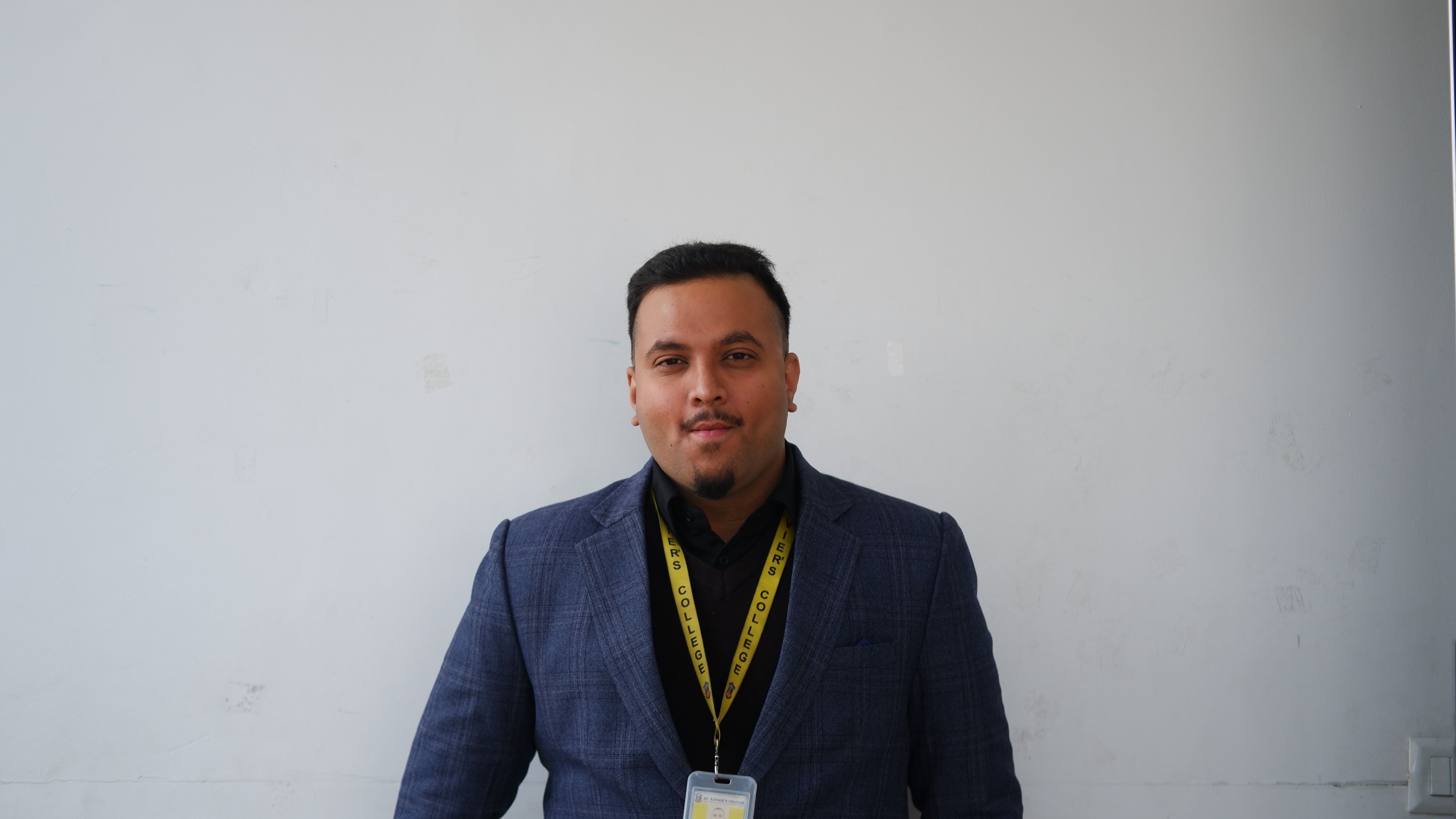
Pranjal Pratap Pokharel
24 years old
Baneshwar
Before
It was the same old—nothing new happened here, just smouldering social and political tensions. Upward mobility felt impossible, aspirations seemed out of reach, and the country felt stuck in a stagnant cycle where change seemed unimaginable.
After
After September 8, I realised that change was necessary. Unlike before, I am curious about how the upcoming elections will unfold. The youth are disillusioned with traditional parties; support now follows individuals rather than parties. So, what will the coalition look like if elections happen on time?

Prerana Adhikari
23 years old
Bhaktapur
Before
Before the protest, I didn’t care much about politics. We always heard about leaders talking but never really doing anything for us, so it was easy to feel disconnected or hopeless about change.
After
But after the protest, something shifted. Seeing so many young people come out, speak up and stand together felt powerful. It made me realise that there can be change if we show up, question things, and demand better.

Arun Singh Nepali
24 years old
Samakhusi
Before
I’ve always been interested in politics and raised my voice in my own way, so in a way, I felt proud of the September 8 protest. It was inspiring to see so many young people come together, turning frustration into action and making our voices heard.
After
I’ve realised that our society is skilled at spreading disinformation for personal gain, and dealing with this kind of division is quite challenging in the age of information. It often feels like truth gets lost in the noise, and staying informed requires constant effort and critical thinking.

Garima Bista
22 years old
Baluwatar
Before
Before the Gen-Z protest, I viewed political protests in Nepal as routine—almost like a cycle of speeches, strikes, and party blame games. They felt remote, mainly driven by politicians and their interests rather than true public voices. The idea of protest didn’t seem potent enough to create real change; it was just another event that came and went.
After
But after the Gen-Z protest, everything changed. This movement wasn’t driven by party politics but by frustration and the honesty and courage of young people to expose corruption, privilege, and injustice. Seeing students, creators, and ordinary citizens stand up after social media ban revealed a different Nepal—more aware, united, and less fearful.

Aishwarya Koirala
22 years old
Bhaktapur
Before
I wouldn’t call myself indifferent, but rather disillusioned. In school, political affairs were presented as something abstract—names, dates, and systems, never as something connected to our daily lives. The media didn’t help either. Every headline seemed to confirm my alienation. And perhaps the most subtle reason for my disinterest was comfort. Living in a society where my basic needs were met, I didn’t feel the urge to question the system.
After
However, the protest made me realise that we no longer have the luxury of remaining apathetic. If there’s one thing it taught me, it’s that silence breeds regression. Watching how our outrage contributed to the rise of a strong technocratic government—one that seems to be listening—has made politics feel close to home. Despite having a voter’s ID for years, I never bothered using it. This time around, I’m eager to make my vote count.

Bikash Rawal
23 years old
Koteshwar
Before
Previously, I felt like just another among 30 million spectators, watching the scripted, rigged political game on my phone. I doubted my voice made a difference. Politicians appeared like Bollywood stars—giving interviews and seeking votes, but seeming disconnected from everyday people.
After
Now, I feel like I am actively involved in this. I believe my voice can influence change. I am optimistic about my future and that of Gen-Z, Gen-Y, and Gen-Alpha, as politicians are increasingly connecting with the people—and that’s essential in a small country like ours.

Binayak Sapkota
22 years old
Baluwatar
Before
For a long time, I felt people saw our generation as disconnected from national issues. Many believed we were only active on social media, not shaping real change. Politics seemed far away, something handled by older leaders and familiar faces. Conversations about the country’s future rarely included people my age.
After
The protests changed that feeling completely. Watching my generation come together with such clarity and purpose made me see how powerful we can be when we act collectively. It proved that we are aware, organised, and ready to take responsibility. It also made me reflect on my own silence.

Bishakha Koirala
23 years old
Sunsari
Before
I was always interested in politics, but it often felt like a lonely pursuit. There were very few people I could discuss political issues with. Even when I found someone to talk to, they were mostly older men. It was rare to see young women, especially those my age, who shared the same curiosity or willingness to converse about national affairs.
After
The Gen Z protest completely changed that perception. It made people of my age group reflect deeply and even feel guilty for not paying attention to the country’s affairs. This movement reminded us that understanding politics, governance, and national issues from the ground up is essential. Every decision we make must take into account all citizens—young and old—and aim to maximise collective well-being.

Samaya Khadka
25 years old
Sindhuli
Before
I was already interested in politics, even though many around me used to say that ‘politics is a dirty game’. Over time, as I began to understand it more deeply, I realised how much influence it holds over our lives. Before the Gen Z protest, I was deeply frustrated. It seemed like the government would never step up.
After
But now, for the first time, I felt a sense of connection between the government and the people—especially when Prime Minister Sushila Karki began engaging with youths in a friendly and approachable way. During the recent flood incident, the government’s quick and active response made me realise that politics can serve the people, not just political parties or power holders.

Sarina Dhakal
24 years old
Perth, Australia
Before
As a non-resident Nepali Gen Z living in Australia, I never paid serious attention to Nepal’s politics. It always felt disappointing and chaotic—leaders arguing on TV, lawmakers throwing chairs, and people misunderstanding basic issues like same-sex marriage. Politics seemed more like entertainment than something meaningful.
After
That changed a bit when Balen Shah came into the picture. His actions and leadership gave me hope that change was possible. For the first time, I started following Nepali news with genuine interest. This curiosity has amplified in the weeks following the Gen Z movement.




 26.22°C Kathmandu
26.22°C Kathmandu
